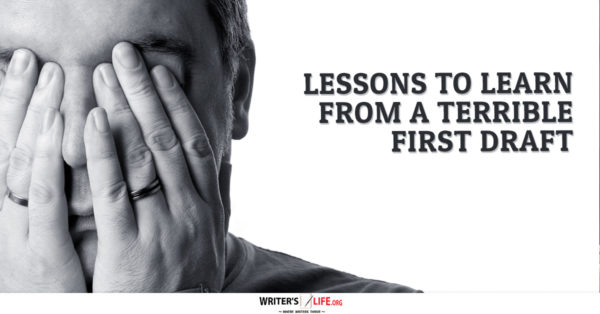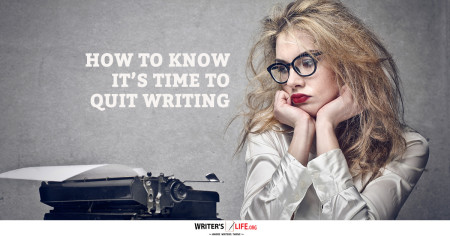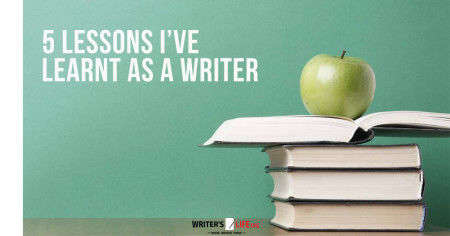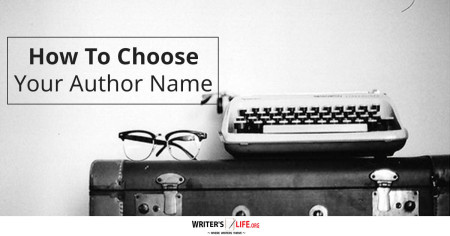- How To Tackle Jealousy In Creative Writing
- Common Submission Mistakes
- How To Stop Your Blog Becoming Boring
- The One Thing Every Successful Writer Has In Common
- How To Make Yourself Aware Of Publishing Scams
- Why Almost ALL Writers Make These Grammar Mistakes At Some Point
- 5 Tips For Authors On How To Deal With Rejection
- Top Mistakes to Avoid When Writing a Novel
- How to Avoid Common New Writer Mistakes
- 10 Mistakes New Fiction Writers Make
Lessons To Learn From A Terrible First Draft

Writing the first draft of a novel is a huge learning curve, and no matter how experienced you are as an author, there are still lessons to be learned.
Getting to the end of your first draft is an achievement in itself - many aspiring novelists don’t get there, so you should be proud. However, it is only when you have finally written that last sentence that the work truly begins!
Editing and re-drafting your novel is often the part that authors dread the most. The feeling of elation for finishing only lasts a mere moment, for, when you begin to read back over what you have written you wonder what on earth you were thinking! At the time waking up in the middle of the night and writing half your chapters while barely awake seemed like a good idea, as did accidentally finishing off that bottle of sauvignon blanc while you were just ‘in the zone.’ But now half of your book reads like a drunk zombie wrote it and you're not sure how to fix it!
But you know what? If your first draft is terrible, that’s OK. You know why? Because everyone’s is, and there is plenty to learn from it too.
Concentrate on what is important
Writing the first draft shouldn’t take up so much time. All you need to achieve is getting the story out of you, forming the characters and working out how your narrative fits together. Remember this and don’t sweat the small stuff. So what if that sentence sounds clunky? So what if that character description doesn’t entirely capture the image in your head? Use your first draft to quickly get the story down. All the finer details come after.
Don’t fret too much about your ‘voice.'
Finding your unique author voice takes practice, but once you have got it, you’ll find wiring so much easier. Use your first draft to find your voice. This is when the words just come naturally and seem to flow out of you. If you are writing in this way - your reader will read this way too. If your writing feels forced and you struggle with it, this will translate to your reader too. The point is, in a first draft your ‘voice’ might come and go. Don’t worry about this - you can go back and edit those difficult to read bits later.
Accept the inevitable
As previously stated, everyone’s first draft is terrible. The sooner you accept that, the better. If you stop trying to make your first draft the best piece of fiction ever written, you will feel so much freer to write it. Even if you cringe at some of your sentences or the simplicity of your language, that’s OK. No one else has to read your first draft so don’t put unnecessary obstacles in your way by trying too hard for perfection.
Go with the flow
Your first draft will take you to places you hadn’t expected to go. You thought you knew what was going to happen, however, as you write a character goes off in another direction, or suddenly the plot changes or something unexpected happens which changed the course of the action and throws you off. The key is not to panic. Your first draft should be a little uncertain, a little scary, but if you refuse to see where it goes you could end up regretting it - sure it might lead to a dead end, but at least you found out, and you can just go back the way you came!
You don’t always have to start at the beginning
If you can't quite seem to start your novel, then, well, don’t. Your first draft doesn’t have to be written in sequence. If you know you want something to happen in your book, even if it’s the ending, just write that bit, then tackle the next chapter or scene when you have finished. Slowly pieces will start to slot together. If you write this way, it is easier to see when something doesn’t work, and when it comes to editing you can remove scenes, or rearrange them to make it better.
Remember your first draft is just about getting your story down. This is the only lesson you need to learn. Once you have your story down you can then figure out how to make it amazing. So next time you are starting something new try to keep that in mind, and your terrible first draft could be the start of something to be very proud of.

Bethany Cadman -author of 'Doctor Vanilla's Sunflowers'





















One Comment